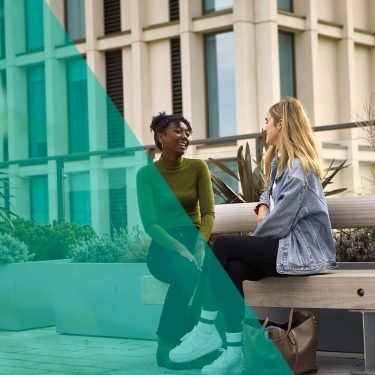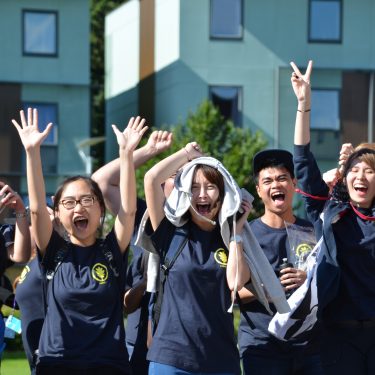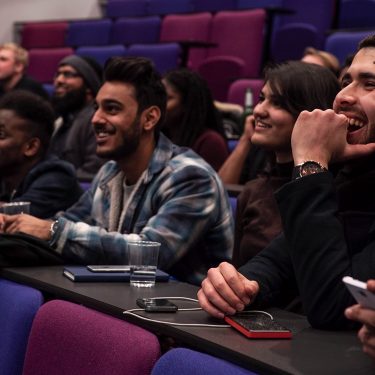In May we launched the UPPF Student Futures Commission with our first poll from our partner Group GTI, which showed that students are prioritising return to face-to -face teaching from September.
Below we’ve updated our analysis to look at how the experience of students has varied between different student groups across the commissions three main themes: teaching and learning, student experience and wellbeing, and employability.
Teaching and Learning
In the face of a difficult year, our initial findings showed that students have adapted to and even enjoyed parts of the switch to remote working.
Even though their main priority was to return to some face to face teaching, only 15% of students don’t want any online delivery next year. When asked to choose between recorded online lectures and online lectures delivered live, asynchronous methods come out top – and there’s a strong preference across all groups of students for retaining recorded lectures in the next academic year over live online lectures.
New methods of assessments, adapted at speed by universities, also appear to be working well, with the majority of all students satisfied or neutral about the ways in which their university was assessing their degree – though first year students are less likely to be dissatisfied compared to their second or final year counterparts
Though some elements of remote working are welcomed, students are particularly worried about work-life balance and an unsuitable environment for home learn. When asked what worried them most about remote working, 39% of respondents were most concerned about their work-life balance and 33% felt that the distractions of the remote working environment were affecting their study. Master’s level students in particular felt that their work life balance had gotten worse.
As we’ve seen in schools, disadvantaged students are less likely to have a good home set up for learning remotely. 33% of students eligible for means tested funding said that a lack of access to a stable internet connection impacted their learning, compared to 24% of non-eligible students. It’s not surprising then to see that students eligible for bursaries were also significantly more likely to prioritise a return to face to face teaching compared to their peers.
And students aren’t always feeling supported – 42% of students surveyed said they felt the support they received in 20/21 was worse than in 19/20. 54% of students said they had less contact time than expected/than their university had set out and 63% of all students feel are below the level they expected to be academically. Students from BAME backgrounds are more likely to feel that they are working below the academic level they expected than their white counterparts.
Wellbeing
While aspects of online delivery and the university experience since March 2020 have worked well, 78% of students said the pandemic had had a somewhat or very negative effect on their mental health.
The GTI poll shows that some students have experienced the negative mental health impacts of the pandemic more than others. Students on arts or humanities and social sciences courses were much more likely to report that their mental health had been negatively impacted, particularly when compared to students on medical or related courses. This perhaps reflects that students on STEM courses were allowed back to campus much earlier than their arts & humanities peers.
After a year or more of remote or blended learning, 22% of all students reported that they were worried about loneliness and feeling isolated. 85% of students said that the pandemic had made it more difficult for them to make friends, and around 50% of all students hadn’t participated in any extra-curricular activities.
The impact of being able to return to in person teaching on inclusion and combating isolation is also visible: 32% arts subjects were most likely to be concerned about loneliness, compared to only 14% of students on medicine and other related courses, who are more likely to have spent time on campus this year.
As well as students starting university for the first time therefore, students transitioning into their second or final year are also likely to need some additional support with inclusion and re-engaging with their university communities.
Employability
The rise of home working across many sectors, not just in universities, means that students’ priorities for their first graduate job have also changed, reflecting trends in the labour market. The Group GTI poll found that flexible working, job security and opportunities for training and development are all more important for graduates than before the pandemic, with location less important.
But amid gloomy predictions about rising unemployment, graduates lack confidence in the employment market. Female students in particular are 10% more likely to have little confidence in the strength of the graduate job market and in the fact that their time at university will help them secure a graduate job when they leave university compared to their male peers.
White students are less likely to feel confident in the strength of the employment market compared to their BAME counterparts. Only 7% of white student surveyed by GTI were very confident in the graduate job market – compared to 12% of students from asian ethnic groups and 22% of black africian or carribean students. Students from black backgrounds are most confident about the employment market and that their time at university will help them secure a graduate role.
Despite this, students across all groups report that they are feeling supported by their university when it comes to finding a job and securing work experience. It’s clear that more support is needed to reassure students about their future plans, options and opportunities.
We’ll be exploring all these points in more detail across our three oral evidence sessions in the coming months:
- 18th June: Teaching and Learning
- 9th July: Student Experience and Wellbeing
- 8th October: Employability.
If you’d like to watch the session or contribute evidence to the commission, please contact us at studentfuturescommission@publicfirst.co.uk.








